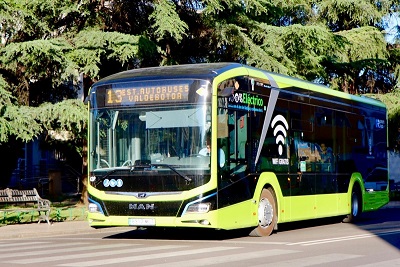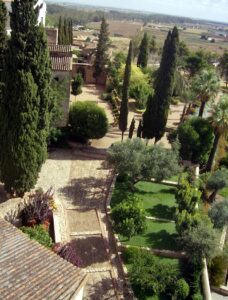While relatively modest in size, Badajoz offers a functional and accessible public transport system that serves both locals and visitors alike. Its transport infrastructure is centred around an efficient bus network, supported by intercity connections and sustainable mobility initiatives.
Urban Bus Services
 The backbone of Badajoz’s public transport is its urban bus network, operated by Tubasa (Transportes Urbanos de Badajoz, S.A.). The company runs over a dozen lines that criss-cross the city, connecting key districts, commercial areas, educational institutions, and medical facilities. Services typically operate from early morning until late evening, with reduced frequencies on weekends and public holidays.
The backbone of Badajoz’s public transport is its urban bus network, operated by Tubasa (Transportes Urbanos de Badajoz, S.A.). The company runs over a dozen lines that criss-cross the city, connecting key districts, commercial areas, educational institutions, and medical facilities. Services typically operate from early morning until late evening, with reduced frequencies on weekends and public holidays.
The buses are modern, air-conditioned, and increasingly environmentally friendly, with several hybrid and electric vehicles introduced to lower emissions. Most routes are punctual and reliable, though peak hour congestion can cause occasional delays.
A single ticket usually costs around €1.10, with various travel cards and discounts available for regular users, students, pensioners, and people with disabilities. The rechargeable Bonobús card offers significant savings for frequent travellers, and can be topped up at kiosks and designated sales points throughout the city.
Intercity and Regional Connections
Badajoz is well-connected to other towns and cities in Extremadura and beyond through regional bus and train services. The main bus station (Estación de Autobuses de Badajoz), located near the city centre, serves as a hub for journeys to Mérida, Cáceres, and even cross-border destinations such as Elvas in Portugal.
Rail services, although less frequent, are available from Badajoz’s train station. Trains operated by Renfe connect the city with Madrid, Seville, and other Spanish destinations. The line between Badajoz and Madrid has been undergoing modernisation, with future plans aiming to reduce travel time and increase passenger comfort.
Taxis and On-Demand Services
Taxis are readily available across Badajoz, offering a convenient if more costly alternative to buses. Licensed taxis are metered and can be found at designated ranks or booked via phone or mobile apps. While ride-hailing apps are less common than in larger Spanish cities, some local services offer similar on-demand transport options.
Cycling and Sustainable Transport
In recent years, Badajoz has taken steps to promote cycling and walking as viable alternatives to motorised transport. Dedicated cycle lanes, pedestrianised streets, and the BadaBike public bicycle hire scheme are part of a wider commitment to sustainability. The city council continues to invest in infrastructure to make Badajoz greener and more accessible for all.
Challenges and Future Development
Despite its strengths, Badajoz’s public transport system faces several challenges, including limited service frequency during off-peak hours and a need for better integration between different transport modes. However, recent investments and a growing focus on eco-friendly solutions point towards a promising future.
Related articles

Enjoy the fiestas of Badajoz
Rich in tradition, colour, and local spirit, these festivals offer a unique glimpse into the soul of this historic Spanish

Typical food to try in Badajoz, Extremadura
The city’s cuisine is a delightful fusion of rustic, hearty flavours rooted in tradition, yet bursting with the vibrant tastes

Day trips from the city of Badajoz
Whether you’re seeking medieval castles, natural parks, or quaint towns brimming with local flavour, here are some of the best

The lesser known places to visit in Badajoz
Badajoz is not a big city, but it still has a wealth of historic sites and places to visit. If
